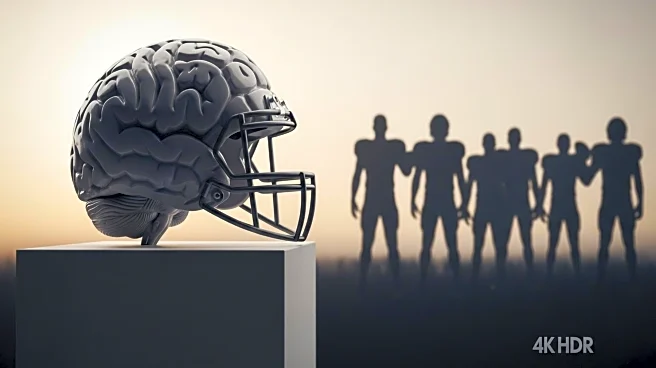What is the story about?
What's Happening?
As the 2025 NFL season begins, there is increased awareness among players and fans about the risks associated with chronic traumatic encephalopathy (CTE), a serious brain disorder caused by repeated head impacts. CTE symptoms can include memory loss, depression, mood swings, confusion, and suicidal thoughts. Research indicates that the disorder is linked to the abnormal accumulation of tau protein in the brain, which can lead to long-term brain changes and cell death. The National Institutes of Health (NIH) supports research efforts to understand CTE, improve diagnostic tools, and develop treatments. This growing awareness has led to changes in sports safety protocols and equipment design.
Why It's Important?
The heightened awareness of CTE is significant as it impacts not only football players but also athletes in other contact sports, military veterans, and individuals with histories of repeated brain injuries. Understanding CTE is crucial for developing effective safety measures and treatment options, potentially reducing the incidence of the disorder. The NIH's involvement in CTE research underscores the importance of addressing this public health issue, which affects cognitive and emotional well-being. The changes in sports regulations and equipment design aim to protect athletes from long-term brain damage, highlighting the need for continued research and innovation in this field.
What's Next?
Researchers are working to find ways to detect CTE in living individuals, potentially through brain imaging and blood tests. These advancements could lead to earlier diagnosis and intervention, improving outcomes for those at risk. The NIH continues to fund projects that explore brain injuries and develop treatments, informing safety protocols across various sports levels. As awareness grows, further changes in sports practices and equipment are expected, aiming to minimize head impacts and protect athletes' health. The ongoing research may also influence public policy and healthcare practices related to brain injury prevention and management.















